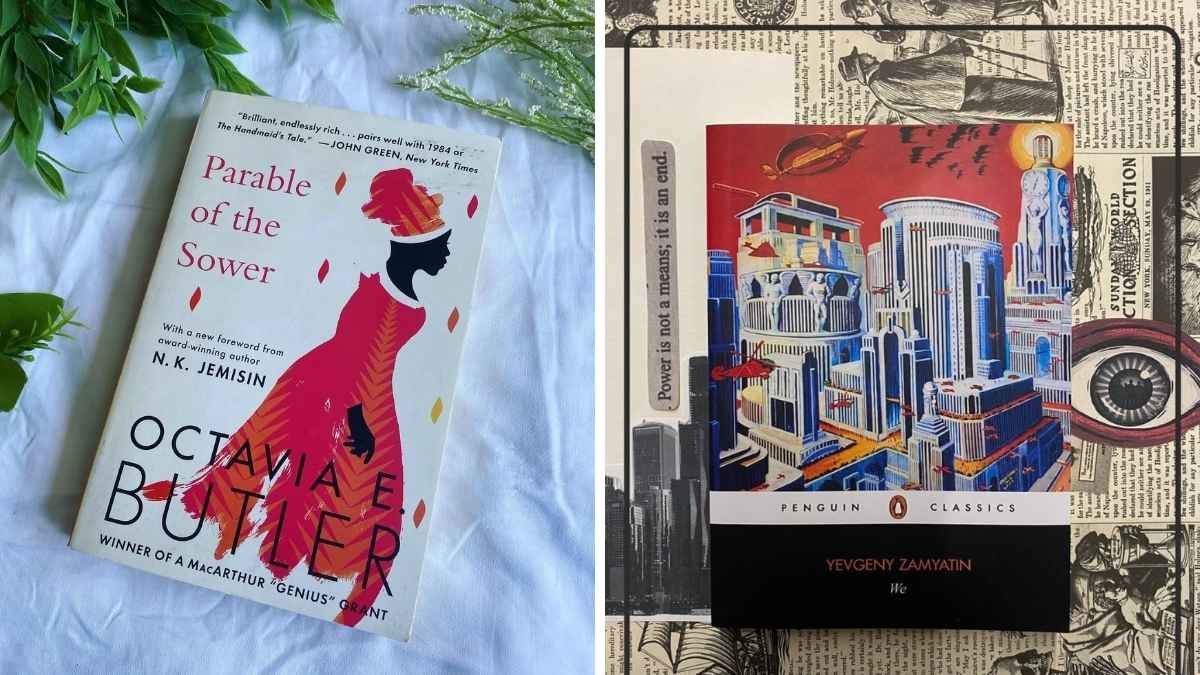
Every chef has a bookshelf filled with dog-eared, sauce-splattered tomes that shaped their culinary DNA. These aren’t just recipe collections—they’re manifestos, textbooks, and love letters to the art of cooking.
Whether you’re a home cook chasing kitchen confidence or a foodie dreaming of Michelin-starred techniques, these 14 books are your gateway to culinary enlightenment. Let’s dive into the first five, curated by chefs who swear by them—and you will too.
1. The French Laundry Cookbook by Thomas Keller

If kitchens were religions, Thomas Keller’s The French Laundry Cookbook would be the Bible. First published in 1999, this tome is a masterclass in precision, discipline, and the relentless pursuit of perfection. Chefs worldwide credit Keller with revolutionizing American fine dining by importing French techniques and elevating seasonal ingredients to poetic heights. The book isn’t just about recipes—it’s a blueprint for building a kitchen culture where every detail matters, from the crispness of a herb garnish to the silky texture of a consommé.
Keller’s mantra? “Great cooking is about consistency.” His recipes for dishes like Oyster and Pear Nage or Adobo Chicken demand patience, but they reward you with dishes that taste like liquid luxury. For many chefs, this book isn’t just inspiration—it’s a rite of passage. As one line cook once told me, “If you can execute Keller’s standards at home, you can handle any kitchen.”
2. Salt, Fat, Acid, Heat by Samin Nosrat

Imagine a book that teaches you how to cook instead of just what to cook. That’s Salt, Fat, Acid, Heat. Samin Nosrat’s debut is a game-changer because it demystifies the four building blocks of flavor. Through approachable science and vibrant storytelling, Nosrat explains why a pinch of salt can transform a dull dish or how a splash of vinegar can “wake up” a stew. The book’s genius lies in its simplicity: it empowers you to troubleshoot recipes intuitively.
Chefs adore Nosrat’s emphasis on flavor intuition. “This book taught me to trust my tongue,” says Top Chef winner Mei Lin. Whether you’re balancing a vinaigrette or rescuing a batch of bland soup, Salt, Fat, Acid, and Heat is your culinary Swiss Army knife. Plus, the stunning illustrations make it as beautiful to flip through as it is to cook from.
3. Mastering the Art of French Cooking by Julia Child

Julia Child didn’t just teach America how to cook French food—she taught us that cooking is an act of joy. Her 1961 masterpiece is a love letter to butter, wine, and the theatrical magic of French cuisine. From boeuf bourguignon to crème brûlée, Child’s recipes are exhaustive, encouraging, and written with the warmth of a dinner party host who wants you to succeed.
What do chefs love most? The child’s unflinching commitment to clarity. She breaks down intimidating techniques into steps so simple, even a novice can conquer a soufflé. As Emeril Lagasse once noted, “Julia made us all believe we could be chefs.” This book isn’t just a recipe guide—it’s a permission slip to embrace the mess and marvel of cooking.
4. “The Whole Beast: Nose to Tail Eating” by Fergus Henderson

Fergus Henderson’s The Whole Beast champions the philosophy of utilizing every part of the animal in cooking, promoting sustainability and a deeper appreciation for food. This book is more than a collection of recipes; it’s a manifesto for conscientious eating. Henderson’s approach encourages cooks to explore traditional methods of brining, salting, pickling, and preserving, fostering a holistic understanding of meat preparation.
The book’s influence extends beyond recipes; it has inspired restaurants and chefs worldwide to adopt nose-to-tail practices, honoring the ingredients and minimizing waste. Henderson’s candid writing and passion for the subject make this book both informative and inspiring for those interested in ethical and comprehensive cooking practices.
5. On Food and Cooking by Harold McGee

Harold McGee’s On Food and Cooking is the Swiss Army knife of food science. First published in 1984, this encyclopedic deep-dive explains everything from why eggs curdle to how umami makes your tongue happy. McGee translates complex chemistry into accessible insights, empowering cooks to hack techniques and innovate.
Chefs treat this book like a culinary Ouija board—pull it out when you need answers. “McGee taught me that cooking isn’t magic,” says Modernist Cuisine co-author Nathan Myhrvold. “It’s physics and biology.” Whether you’re troubleshooting a soufflé collapse or perfecting a steak’s Maillard reaction, this book is your Rosetta Stone.
6. Kitchen Confidential: Adventures in the Culinary Underbelly by Anthony Bourdain

Anthony Bourdain’s Kitchen Confidential is a wild, unfiltered ride through the chaotic world of professional kitchens. First published in 2000, this memoir is a tell-all account of Bourdain’s experiences in the restaurant industry, from his early days as a line cook to his rise as a celebrated chef and TV personality. The book pulls back the curtain on the gritty underbelly of restaurants, revealing the late-night antics, power struggles, and sheer madness that define kitchen life.
What makes Kitchen Confidential so compelling is Bourdain’s unapologetic honesty and sharp wit. He shares stories of drug-fueled kitchen shifts, the cutthroat hierarchy of Michelin-starred restaurants, and the absurdity of trying to maintain a “perfect” dining experience. For foodies, it’s a crash course in the brutal beauty of professional cooking. As one chef put it, “This book taught me that kitchens are both a war zone and a sanctuary.”
7. The Devil in the Kitchen: Sex, Pain, Madness, and the Making of a Great Chef by Marco Pierre White

Marco Pierre White’s memoir is a no-holds-barred look at the relentless drive and emotional turmoil behind becoming a world-class chef. White, who became the youngest chef to earn three Michelin stars, chronicles his journey from a working-class upbringing to the pinnacle of haute cuisine. The book is raw and unflinching, detailing White’s battles with mental health, his explosive temper, and the cutthroat culture of professional kitchens.
White’s story is a reminder that greatness often comes at a cost. He shares harrowing tales of 18-hour shifts, kitchen meltdowns, and the psychological toll of perfectionism. Yet, his passion for food shines through, making this book both a cautionary tale and an inspiration. As White himself wrote, “Cooking is not just about food—it’s about survival.”
8. 32 Yolks by Eric Ripert

Eric Ripert’s memoir is a deeply personal journey through his life in food. The title refers to the perfect omelet he learned to make with 32 yolks under his grandmother’s guidance—a dish that symbolizes his relentless pursuit of perfection. Ripert, the chef of New York’s iconic Le Bernardin, takes readers from his childhood in France to his rise as a Michelin-starred chef.
What sets 32 Yolks apart is its emotional honesty. Ripert candidly discusses his struggles with addiction, his relationships, and the mental resilience required to excel in haute cuisine. The book is a testament to the idea that cooking is not just a craft but a form of self-expression and redemption. As one critic noted, “Ripert’s story is as much about vulnerability as it is about culinary genius.”
9. The Soul of a Chef: The Journey Toward Perfection by Michael Ruhlman

Michael Ruhlman’s The Soul of a Chef is a gripping exploration of the grueling path to culinary excellence. The book follows Ruhlman as he attempts to pass the American Culinary Federation’s Certified Master Chef exam—a notoriously difficult certification that tests everything from knife skills to menu design.
Through Ruhlman’s journey, readers gain insight into the mental and physical rigor required to become a master chef. The book is filled with practical wisdom from top chefs, as well as Ruhlman’s reflections on failure, perseverance, and the art of balancing creativity with discipline. For aspiring chefs, it’s both a motivational tool and a reality check. As one chef remarked, “This book made me realize that greatness isn’t just about talent—it’s about surviving the fire.”
10. The Flavor Bible: The Essential Guide to Culinary Creativity by Andrew Dornenburg & Karen Page

If you’ve ever wondered why certain ingredients pair so well together, The Flavor Bible is your answer. This groundbreaking book is a chef’s encyclopedia of flavor combinations, offering insights into how taste, aroma, and texture interact to create culinary magic.
The book profiles hundreds of ingredients, detailing their flavor profiles and suggesting perfect pairings (e.g., basil with tomatoes, ginger with seafood). It’s a must-have for anyone looking to experiment with bold combinations or elevate everyday dishes. As one chef noted, “This book taught me that creativity isn’t about guessing—it’s about understanding the science of flavor.”
11. Modernist Cuisine: The Art and Science of Cooking by Nathan Myhrvold, Chris Young, & Maxime Bilet

If you’ve ever wondered how to cook a steak perfectly using a sous-vide machine or create a sphere of liquid that bursts like caviar on your tongue, Modernist Cuisine is your gateway into the mind-bending world of molecular gastronomy. This six-volume tome, published in 2011, is a magnum opus of culinary science, blending high-tech techniques with stunning visuals.
The book breaks down groundbreaking cooking methods, from sous-vide to hydrocolloids, and even reimagines classic dishes like “deconstructed” burgers and liquid nitrogen ice cream. For chefs, it’s a manifesto of innovation. As one critic noted, “This isn’t just a cookbook—it’s a revolution.”
12. The Silver Spoon Kitchen by The Silver Spoon Kitchen Team

Since its first publication in 1950, The Silver Spoon Kitchen has been Italy’s answer to The Joy of Cooking. This iconic book is a masterclass in Italian home cooking, with over 1,000 recipes spanning regional specialties from Milanese risotto to Sicilian cannoli.
What sets this book apart is its timeless practicality. The recipes are written with a no-nonsense approach, making it accessible for both novices and pros. Chefs love it for its authenticity—no frills, just flavor. As one Italian chef remarked, “This book taught me that great cooking doesn’t need to be complicated.”
13. Letters to a Young Chef by Jeremiah Tower

Jeremiah Tower, a pioneer of California cuisine and mentor to icons like Thomas Keller, wrote Letters to a Young Chef as a passionate manifesto on the art and soul of cooking. The book is a collection of essays offering wisdom on everything from building a career in food to understanding the psychology of taste.
Tower’s prose is as fiery as his personality, urging readers to view cooking not just as a job but as a lifestyle of curiosity and creativity. For aspiring chefs, it’s both a pep talk and a reality check. As Tower writes, “Cooking is about more than food—it’s about love, risk, and the courage to fail.”
14. The Art of Eating by M.F.K. Fisher

M.F.K. Fisher’s The Art of Eating isn’t just a book about food—it’s a love letter to the joy of living. First published in 1943, this collection of essays explores how food shapes our experiences, from a perfectly ripe peach to a shared meal with loved ones.
Fisher’s writing is lyrical and deeply personal, making readers see food as more than sustenance—it’s a celebration of life’s fleeting beauty. As Julia Child once said, “M.F.K. Fisher taught us to romanticize food, and in doing so, she made us better cooks.”






